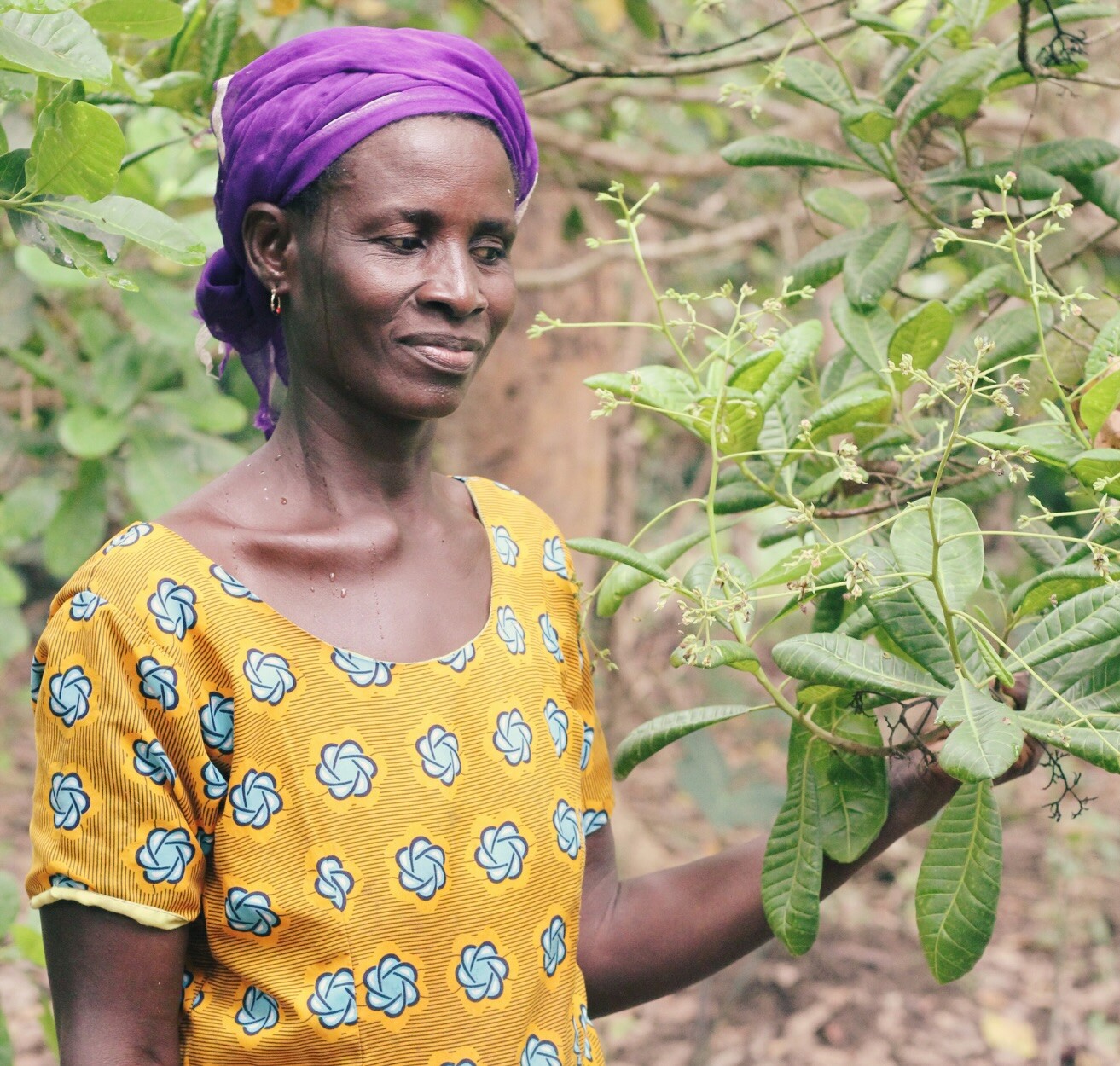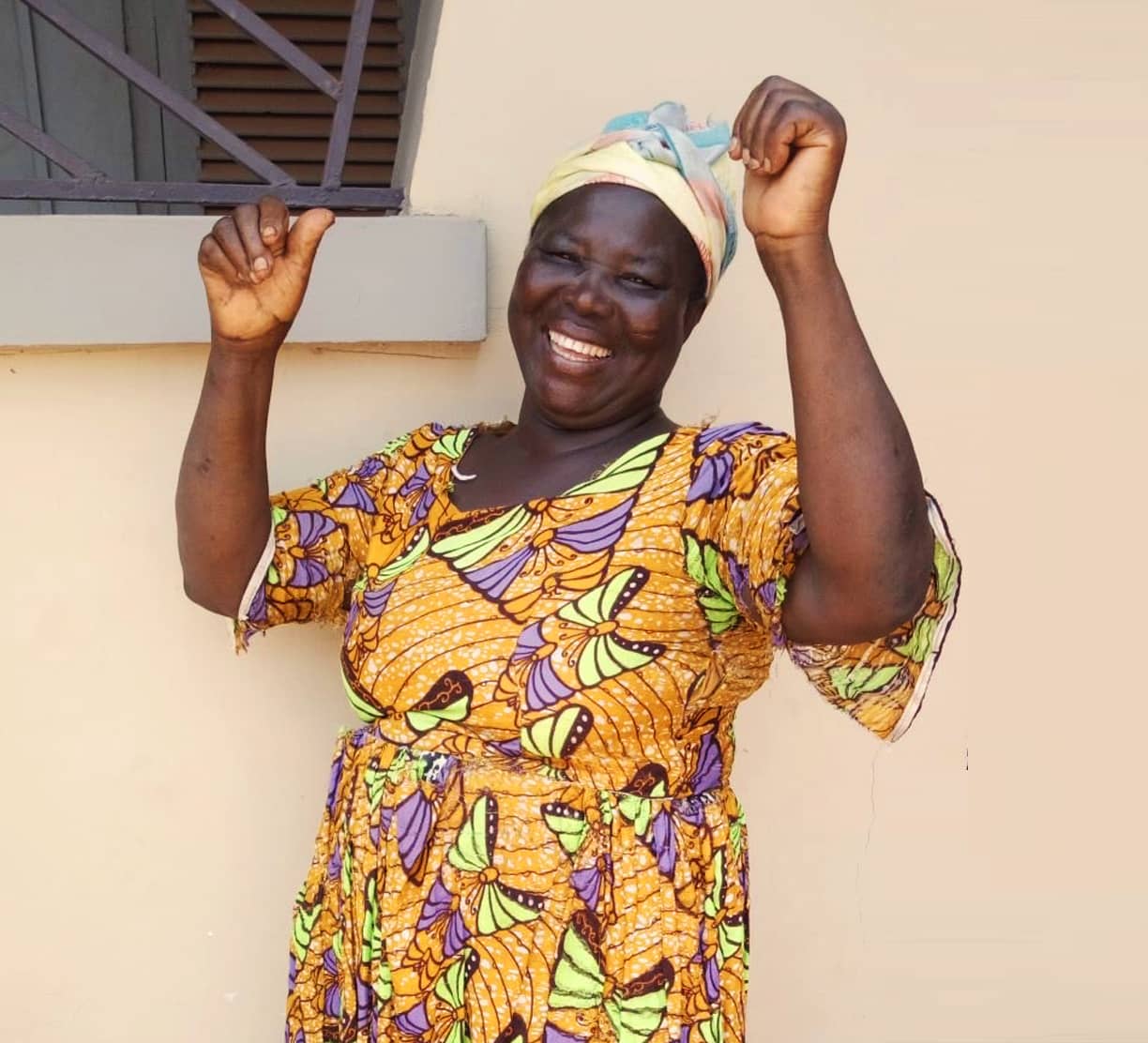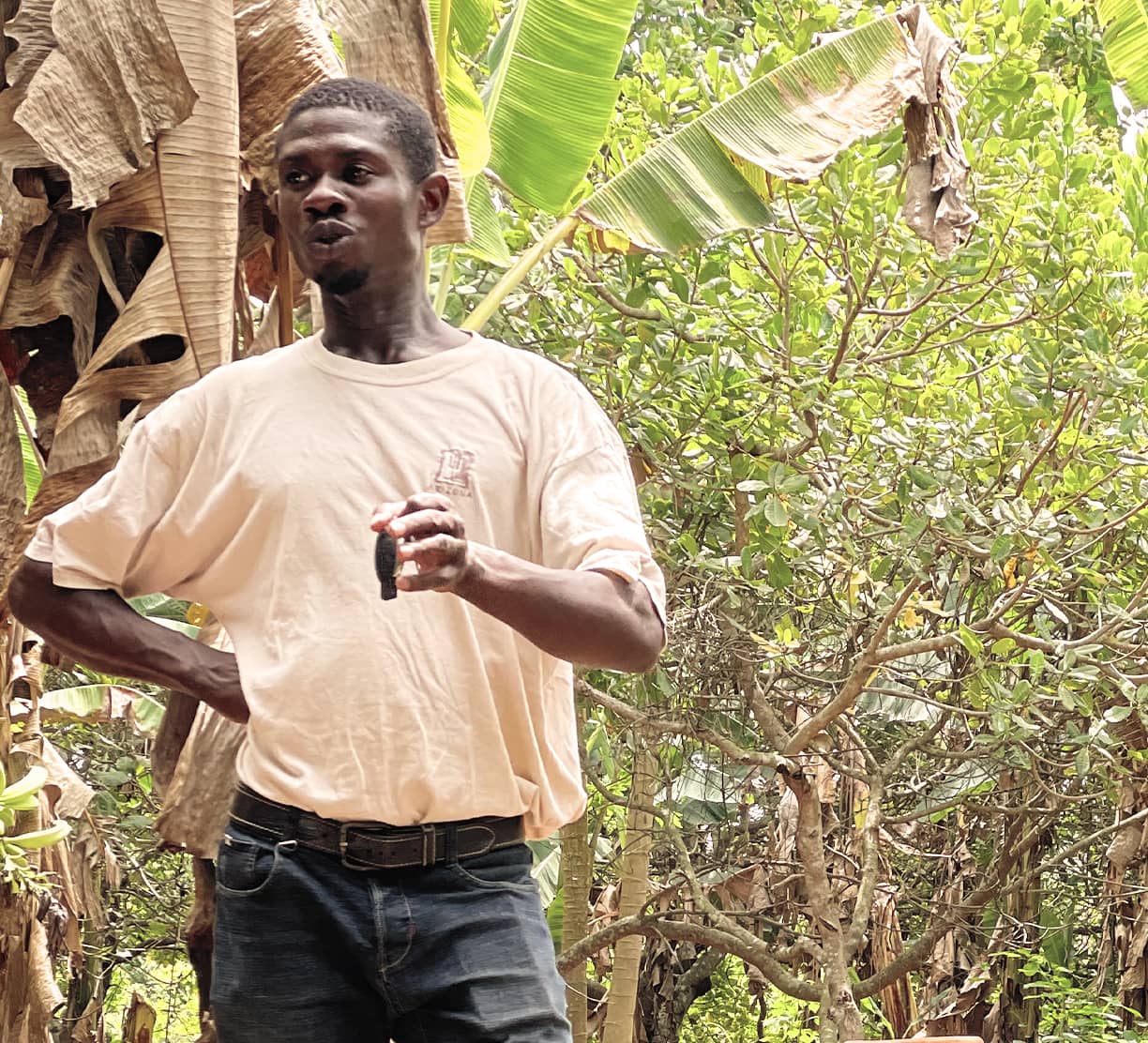

Kate Gyabaah
Cashew Farmer
USAID / Trade Hub Project
Now 51 years old, Kate was born and raised in Aboukrom, a heavily forested small village in Ghana’s Jaman South Municipal District. This district lies in the Bono Region, not far from the country’s border with Côte d’Ivoire, the world’s largest cashew producer. For generations, Kate’s family has tended cashew trees in this rural locale. Today, she manages a 4-hectare plot, growing cashews alongside other crops such as cocoyam, plantain, cassava, orange, and oil palm.
Since completing high school, Kate has relied on cashews as a major source of income. However, low yields and poor cashew prices have meant that money doesn’t stretch far. In an average year, her income amounts to 15,000 cedis (about $2,450). With five children, Kate has often struggled to pay school fees, which take up nearly a third of her annual earnings.
“Because I had no savings, I wasn’t always able to fulfill my responsibilities as a parent in the past,” she says.
Despite these challenges, Kate was intrigued when she first heard about Red River Foods and its reputation for fair prices and helpful training programs. Her relationship with the company began while participating in a Ghana Cashew Hackathon, hosted in partnership with the U.S. Peace Corps. Through the program, Kate and other farmers in her community worked with Red River staff, app developers, and Peace Corps volunteers to develop a mobile program that helps farmers receive live market updates on pricing. So, when she heard about the new training on good agricultural practices, made possible through Red River Foods’ partnership with the USAID-funded West Africa Trade & Investment Hub (Trade Hub) and funding through the U.S. Government’s Prosper Africa initiative, she jumped at the chance to participate and is already seeing the benefits.
“My farm was very dense due to poor tree spacing, but my yield has now increased after implementing what they taught me,” said Kate, who participated in a one-on-one training in July 2021.
Kate now produces the highest volumes of raw cashew nuts among all the Aboukrom farmers who sold to Red River Foods during the 2021 procurement season.
In July 2021, Red River Foods partnered with the Trade Hub to introduce the West Africa Cashew Export Development Initiative to support the training of Kate and over 4,000 farmers across 69 communities in Côte d’Ivoire, Ghana, and Benin. Due to a lack of training, poor access to inputs and equipment, and underlying socio-economic factors, farmers like Kate typically lack awareness of best practices for the production, triage, and storage of cashews. This has historically resulted in poor raw cashew nut yields, post-harvest losses, less competitive pricing, and lower farmer incomes relative to their counterparts in Asia.
The initiative aims to improve farmers’ livelihoods by sharing good agricultural practices to improve the quality and quantity of raw cashew nuts sourced in the region. So far, Kate, along with 128 other farmers in Ghana’s Bono Region, has received training in pruning and thinning, harvest and post-harvest handling, and record-keeping. To further help farmers increase their incomes, Red River Foods also introduced and trained farmers in beekeeping, enabling them to earn money through honey and beeswax sales.
By 2024, Red River Foods plans to have trained 10,950 farmers in good agricultural practices. Red River Foods also plans to organize participating farmers into associations to facilitate knowledge sharing, help them sell their raw cashew nuts more efficiently, and secure better pricing.
Notably, nearly half of the cashew farmers trained through the West Africa Cashew Export Development Initiative will be women, a milestone in the historically male-dominated cashew farming industry. Kate’s achievement has encouraged other women in the community to continue growing cashews and selling their yield to Red River Foods.


